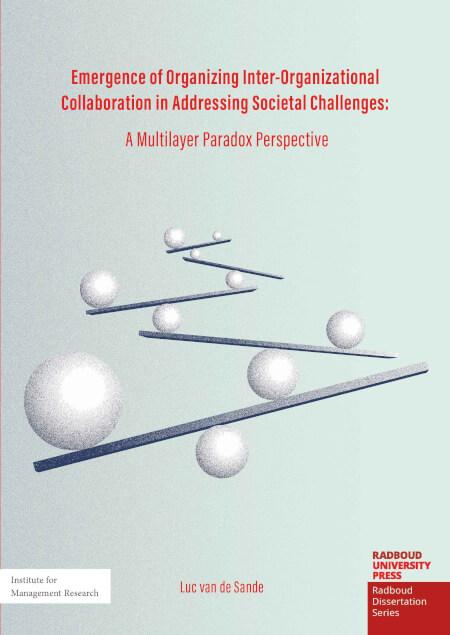Emergence of Organizing Inter-Organizational Collaboration in Addressing Societal Challenges: A Multilayer Paradox Perspective
Keywords:
Inter-organizational collaboration, Business in society, Paradox, Practice theorySynopsis
In this dissertation, I investigate how diverse actors contribute to the emergence of organizing inter-organizational collaborations that set out to address pressing societal challenges. While organizing inter-organizational collaboration is challenging in itself, this is particularly precarious during the early stages of collaboration, as the added complexity, uncertainty and volatility of setting up collaboration adds another layer of complexity. At the same time, the success of such collaborations is vital in addressing societal challenges, as only by actors collaborating across organizational boundaries and combining resources, expertise and knowledge, we can come up with novel and innovative solutions to these challenges. To capture this complexity I draw on paradox theory and practice perspectives to foster our understanding of how the tensions associated with organizing collaboration cascade across organizational levels, and how sophisticated, multi-level and repeated responses by different actors are required to successfully organize collaboration to address societal challenges. Hence, I set out to answer the research question: How do actors navigate emerging paradoxical tensions while initiating interorganizational collaborations to address societal challenges?

Published
Series
Categories
License

This work is licensed under a Creative Commons Attribution-NonCommercial-NoDerivatives 4.0 International License.


